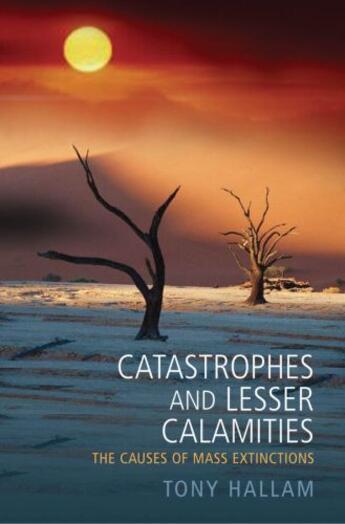-
Nombre de pages : (-)
-
Collection :
(-)
-
Genre :
(-)
-
Thème :
Non attribué
-
Prix littéraire(s) :
(-)
Résumé:
This is a book about the dramatic periods in the Earth's history called mass extinctions - short periods (by geological standards) when life nearly died out on Earth. The most famous is the mass extinction that happened about 65 million years ago, and that caused the death of the dinosaurs. But... Voir plus
This is a book about the dramatic periods in the Earth's history called mass extinctions - short periods (by geological standards) when life nearly died out on Earth. The most famous is the mass extinction that happened about 65 million years ago, and that caused the death of the dinosaurs. But that was not the worst mass extinction: that honour goes to the extinction at the end of the Permian Period, about 250 million years ago, when over 90% of life is thought to have become extinct.
What caused these catastrophes? Was it the effects of a massive meteorite impact? There is evidence for such an impact about 65 million years ago. Or was it a period of massive volcanic activity? There is evidence in the rocks of huge lava flows at periods that match several of the mass extinctions. Was it something to do with climate change and sea level? Or was it a combination of some or all of these?
The question has been haunting geologists for a number of years, and it forms one of the most exciting areas of research in geology today. In this book, Tony Hallam, a distinguished geologist and writer, looks at all the different theories and also what the study of mass extinctions might tell us about the future. If climate change is a key factor, we may well, as some scientists have suggested, be in a period of mass extinction of our own making.
Donner votre avis








